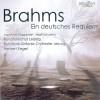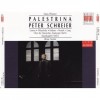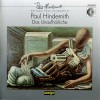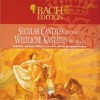| Голос/Инструмент: | Бас |
БИОГРАФИЯ
Siegfried Lorenz (Baritone)
Born: 1945 - Berlin, Germany
The German baritone, Siegfried Lorenz, received already during his school days instruction in piano, organ and cello playing, and since 1962 he studied singing with Alois Orth in Berlin. He won several singing competitions (1969 in Toulouse, 1970 in Budapest) and in 1969 he passed the examination as a singing teacher.
Siegfried Lorenz made his debut in 1969 at the Comic Opera of Berlin in Prokofiev’s Amour des trois oranges, and remained there as regular member until 1973. Since then he has appeared in the opera only as a freelance singer, and was particularly heard as a constant guest since 1978 at the State Opera of Berlin.
Among Siegfried Lorenz’ stage roles are: Wolfram im Tannhäuser, Guglielmo in Così fan tutte, Graf in Figaros Hochzeit, Germont in La Traviata, Posa in Verdi’s Don Carlos, Agamemnon in Gluck’s Iphigenie in Aulis (Berlin State Opera, 1987) and the Graf in Capriccio by R. Strauss.
In 1972 Siegfried Lorenz appeared at the Comic Opera of Berlin in the premiere of Noch einen Löffel Gift, Liebling? by Siegfried Matthäus. But most of his performances have been given on the concert stage, singing oratorios and Lieder, on which he enjoyed a high reputation. Since 1974 he was active as a soloist with the Gewandhauskonzerten of Leipzig. He undertook number of concert tours, including several Lieder recitals in the Soviet Union and in Poland. He was particularly considered as an outstanding Bach interpreter. He worked in Weimar in the educational center. His expressive and warm vocal baritone timbre was particularly in demand for oratorio and Lieder singing.
Recordings: on Eterna, Capriccio (Winterreise and Schöne Müllerin by Schubert, Ein Deutsches Requiem by J. Brahms, Arlecchino by Busoni), DGG (Secular Cantatas of J.S. Bach, L'Ange de feu by Prokofiev), Philips (Die Kluge by C. Orff, Ottokar in Freischütz, La Finta giardiniera by Mozart), Ars Vivendi (Lieder of Schubert), Wergo (Das Unaufhörliche by Paul Hindemith) and on HMV-Electrola (Genoveva by R. Schumann).





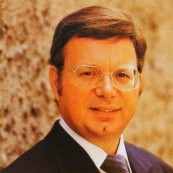
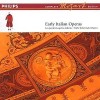

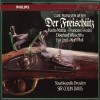
![Handel - Semele [sung in German] - Helmut Koch](http://static.classicalm.com/repository/composition-cover/small/36478-img1570205372768179.jpg)

